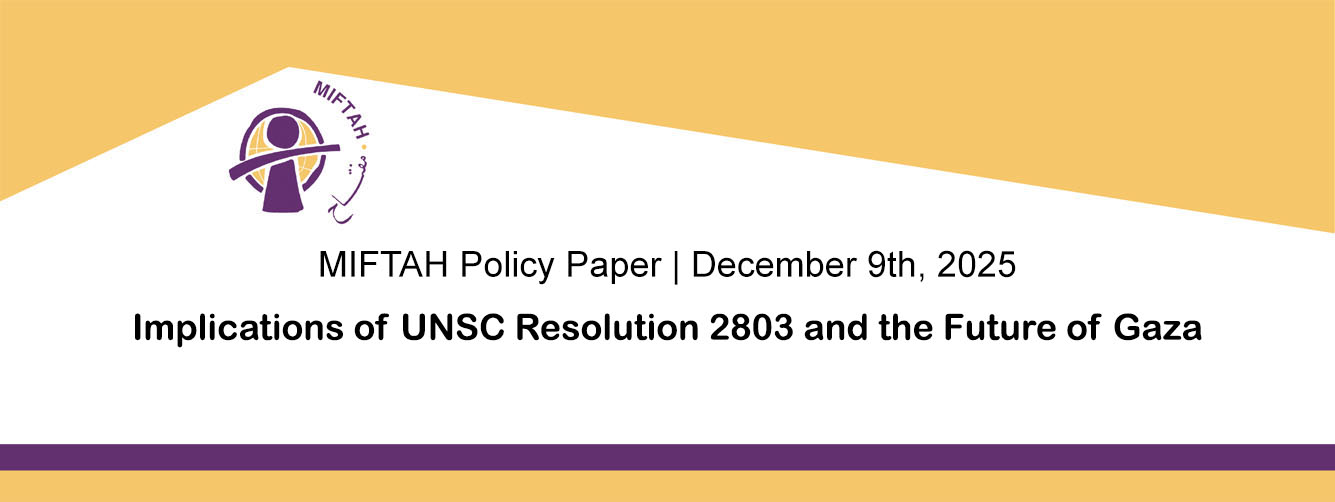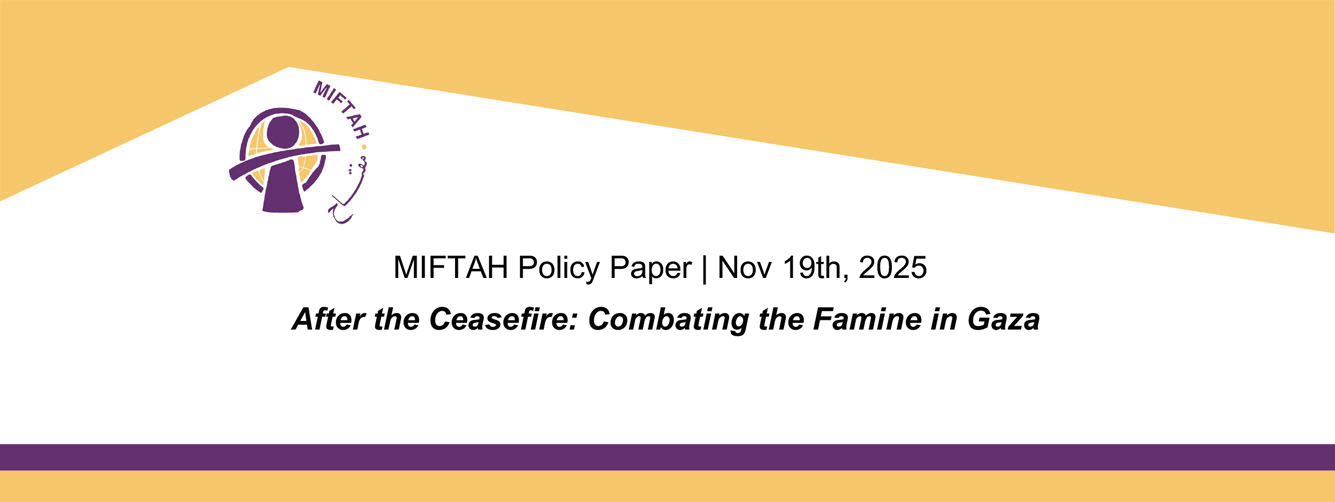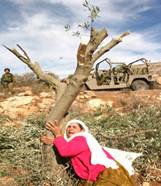Preamble
A few days ago, the Minister of National Economy in the Palestinian Authority announced the news about the WTO decision to accept Palestine as an observer at the 6th Ministerial Meeting, which will be held on December 13-18, 2005. Being accepted as an observer in this multilateral trade event implies that Palestine is negotiating the WTO observer membership. This thing was confirmed by the Minister Deputy when he declared that the MNE is preparing the necessary documents and papers that are required to join the WTO membership.
At the first glimpse, a Palestinian citizen feels very proud of the growing global recognition of Palestine as a nation state. Perhaps, he/she is right to feel so though substantial elements of political and territorial sovereignty do not exist and one still questions whether the Oslo Agreement, the Road Map and the ICJ advisory opinion on the Wall will realize a Palestinian viable state with a territorial integrity. We agree with the Minister that this international platform that oversees the rules of trade worldwide will expose the Palestinian experts to rich know how and knowledge of the mechanisms of the multilateral trade negotiations. Additionally, Palestinian experts will become familiar with the far reaching implications of the international trade regimes on Palestine. We join our voice to the Minister’s wishing that this decision would lead to the integration of the Palestinian economy into the global and regional economy system. As such, the Palestinians can strengthen their economic position and achieve profits through drawing foreign investments and capitals.
However, we need to look carefully at the long term consequences of our looked-forward membership in the WTO on the Palestinian economy particularly on agriculture. We have to realize that we shall have to pay a certain price for abiding by the international obligations and requirements imposed by the free market mechanisms. The WTO policy of trade liberalization may bring benefits for a certain number of commodities but at the same time it might cause great injustices and distortions to some other commodities particularly agricultural produces. It is legitimate for us and all of the other actors to pose the following question to the Palestinian Authority. To what extent shall the farmers, rural women, and food producers benefit/ lose out of the WTO membership?
About the WTO: The World Trade Organization (WTO) was created in January 1995 with the mandate of issuing rules of trade between nations. At its heart are the WTO agreements, negotiated and signed by the bulk of the world’s trading nations and ratified in their parliaments . Since establishment and up till February 2005, 148 member states joined the WTO in addition to Saudi Arabia which was recently recognized an official member. All members have joined the system as a result of negotiation and therefore membership means a balance of rights and obligations. They enjoy the privileges that other member-countries give to them and the security that the trading rules provide. In return, they had to make commitments to open their markets and to abide by the rules . It is worth noting that Israel is a member of the WTO since 21 April, 1995.
As mentioned above, on December 13-18, 2005, the 6th WTO Ministerial meeting will be held in Hong Kong for further discussions on the ongoing multilateral trade negotiations, which collapsed in the 5th Cancun Ministerial in 2003 because of the disagreement among members regarding the Agreement on Agriculture (AOA). Since then, the major problem centered on the blockage that the AOA has created for the negotiations in other sectors. The WTO Director-General, Pascal Lamy, said that an intensive consultative process in the past few days has produced a second in response to a clear message from ministers that they expect to receive a “workable basis” for the deliberations in Hong Kong . Meanwhile, pressure and lobby actions persisted against the WTO Agreement on Agriculture by the civil society organizations, networks and activists from around the world from developed and developing countries highlighting the negative and positive implications that the AOA may have on the developing countries’ economies and on the poor people in the first place.
AOA Impact on Palestine: In the following few pages we wish to look at some of the implications of the agricultural trade liberalization in the context of the WTO Agreement on Agriculture.
The strategic vision of the Palestinian Authority is to create a Palestinian economy compatible with the multi-lateral trading system as announced by the Ministry of National Economy (MNE) indicates a Palestinian commitment to respond to the standards and structural adjustments that the WTO and MTS stipulate. Therefore, if the AOA is ratified in Hong Kong, then Palestine will abide by it even though we are not yet a WTO member. In a workshop held by the Economic Committee of the Palestinian Legislative Council on economic policies, the MNE announced its willingness to meet the WTO membership requirements . All these preparations and announcements take place at the time many challenges face the Palestinian economy, particularly the agriculture sector and the agrarian trade.
The Palestinian economy has suffered, and still suffers, from many problems and distortions as a result of the systematic policies that Israeli occupation authorities implemented to restrain and subjugate the Palestinian economic growth in various sectors to the sole interests of the Israeli economy. For over three consecutive decades, Israel undermined the capacity of the Palestinian people to achieve livelihoods, food security and economic prosperity. It deepened the imbalance in trade exchange with the Palestinian territories. The Palestinian economy have been suffering drastically from the Israel’s dumping of goods especially agricultural products at prices far below the costs of production that Palestinian farmers and producers could not put up with. In the same time, Israel restricted the movement of man and goods and banned it on roads and tunnels which Israel is constructing bypassing the Palestinian communities.
The Palestinian economy is enormously vulnerable because it depends mainly on the substantial external grants and assistance reaching to US$532 million in 2001 and $467 million in 2002 on one hand. The poor performance of the Palestinian Authority and the weak domestic investment and inadequate budgetary allocations have increased the vulnerability of our economy particularly the supply capacity and domestic output in terms of quality and comparative advantage.
This de-facto situation leaves the Palestinian territories severely affected by the imposed policies especially at this stage of legal vacuum and lacking of national and domestic regulations that can support domestic production and strengthen local trading corporations and marketing cooperatives as counterforce to the powerful foreign companies in particular the Israeli firms.
In this context, we are exceptionally concerned with the implications of the trade liberalization policies on the Palestinian agriculture which plays a central role in achieving food security and employment opportunities for the Palestinians. Additionally, it is considered the most important source of sustainability for many Palestinian industries such as food, fodders, leather, shoes, soap, furniture, and cosmetics. Agriculture employs 16% of the Palestinian workforce and guarantees work for more than 39% of those who work in informal sectors. Moreover, more than 17% of the Palestinian families cultivate their lands and raise animals for their survival. “The agriculture sector generates approximately 25% of all Palestinian exports; major agricultural exports are fruits (72% of the cultivated area), olives and olive oil, strawberries, vegetables and, more recently, cut flowers. The Food Processing sector is one of the most rapidly developing sectors in the Palestinian economy. Local market share increased from 25% in 1996 to 30% in 1997 – an increase of 20% in market share for local producers” .
If the AoA is ratified and implemented by the WTO member states, the WTO rules and disciplines will be applied in Palestine, by virtue of the Paris Protocol signed between the PLO and Israel in 1994. Then the Palestinian Authority will be forced to formulate its relevant laws and regulations in conformity with these rules, not responding to the real interest of the Palestinians. Consequently, this will undermine the inherent rights of the Palestinians to formulate their laws without the conditionality of an international/ foreign regulatory agent. We should be aware of the consequences of rules that emerge from a situation of power imbalance. For example, article VIII of the Paris Protocol set rules regarding agriculture. Both signatory parties to the agreement have to respect and apply them in their own de facto contexts. However, these rules make it complicated for the Palestinian farmers and agribusiness firms to establish ground for a strong economy because of the agreement obligations pose technical challenges which do them harm. They are unable to challenge the powerful agricultural and food production players in Israel like Agresco, Hazera’, Ein Bar, Hadar and others. Thus, the Israeli firms’ oligopoly continues in the Palestinian market. In the meantime, the decrease in the farmed land caused by the construction of the wall on expropriated Palestinian fertile land curtails the Palestinian ability to produce sufficient food. As such, Palestinians’ vulnerability exacerbates.
This de facto- situation can be even worse with the implementation of the AOA across the world. The AOA will facilitate access of transnational corporations (TNCs) to the Palestinian economy and increase the global control on agriculture and food production system. This will result in weakening the capacity of the Palestinian producers especially vulnerable sector groups such as farmers and women. And it will endanger the livelihoods of a majority of the working people who are dependent on agriculture particularly women who are engaged in subsistence agriculture. Consequently, it will undermine farmers who are a vital actor in rural economies as they generate local capital and employment and ensure food security. It will be difficult for farmers to stay in business. Farmers will be pushed out of local markets and off their land. If domestic crop production falls, the country will depend on the fluctuated prices and availability of imports.
Allowing the multinational and transnational food monopolies access to the Palestinian market may have devastating environmental effect in terms of biodiversity and the health of the entire population if some of the genetically modified crops especially staple foods such as wheat succeed to reach the country without the supervision of the Palestinian Authority. As a matter of fact, we don’t know if the food aid that arrives from the States is genetically modified or not. It is well known that the Palestinian Authority does not have full sovereignty over imports, which come through Israeli ports and inlets.
Trade liberalization and the AOA may lead to disastrous consequences on Palestinian rural women. Although 60% of the work associated with cultivation and food production in Palestine is done by women, the latter are more vulnerable because of lacking the assets, services and financial support, they have less access to global market and their weak bargaining power do not enable them to resist shocks caused by trade liberalization. Women and men have different capacity to respond to trade policy changes, therefore shifting from subsistence to non-traditional agricultures and to production for the external market (export- oriented crops), which require increasing products standards are problematic for women whose farms are small and under-resourced. Consequently, this can undermine household food security and create more constraints for women. On the long run this shift will lead to poverty, insecurity, and powerlessness.
Conclusion:
We would like to wish the Palestinian delegation to the 6th Ministerial meeting successful deliberations with the various global trade actors. However, they must keep in mind the losses that the Palestinian economy including farmers, women and small producers may suffer from if the Palestinian Authority has to introduce economic adjustments in response to the requirements of the multi trade system. The Palestinian Authority must be aware of the cost of losing the preferential access that Palestinian exports such as olive oil, vegetables, fruits and flowers has to the European, US and Arab markets if agricultural tariffs are deeply cut. We encourage the Palestinian Authority to hold talks with the different stakeholders including civil society organizations, farmer and women cooperatives, producer unions, and the private sector. Such broad participation can stop the Palestinian Authority from taking unilateral decisions that might harm the majority of the population.







